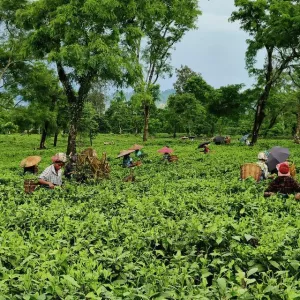Unpacking identity and intersectionality in India’s Assamese smallgrower tea sector
Do you know where your tea comes from? Recentreports on the state of the industry have shown that there is cause for concern about whether your cup of tea was produced ethically, particularly if those leaves came from India. Worryingly, these results pertain to tea plantations, which are a highly regulated sector with established worker protections. But there is another,

Unpacking identity and intersectionality in India’s Assamese smallgrower tea sector
Do you know where your tea comes from? Recentreports on the state of the industry have shown that there is cause for concern about whether your cup of tea was produced ethically, particularly if those leaves came from India.
Worryingly, these results pertain to tea plantations, which are a highly regulated sector with established worker protections. But there is another, less formalized side of the industry run by small tea growers not associated with plantations that are even more vulnerable to exploitation and hardship. The market share of small tea growers in India has reached around half of all tea production as low leaf prices push the tea sector to become increasingly informal. The people who are employed in this small tea growing sector, and particularly those from marginalized groups, are particularly vulnerable to exploitation as their work is often invisibilized and unregulated.
While the rise of the small tea sector is fairly well documented, there is extremely little evidence about who is conducting this small-scale cultivation, what their roles are, and the status of their working conditions and economic opportunities. Who are these invisible workers, and what can be done to safeguard their livelihoods and reduce exploitation?

